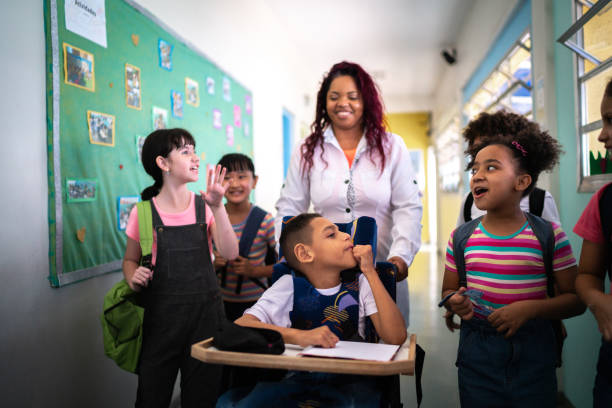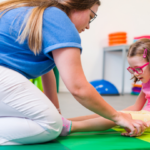Parents and children already endure an incredible number of challenges when it comes to education, and the pandemic added to those challenges. Schools around the world put COVID-19 protocols in place for the foreseeable future and special education facilities have increased the protection of their students returning back to school.
These new changes can be a struggle for students and teachers, especially those with special needs and coexisting conditions, including cerebral palsy. Now that learning is back to in-person, students with disabilities can return to regular socialization and access to vital resources.
Common challenges associated with remote learning for children with disabilities include taking those children out of their regular routines and dramatically reducing one-on-one learning and in-person socialization with students in the classroom.
Just as the pandemic brought challenges, there were also many brilliant new ideas that came to fruition. Many different resources helped students during these times, and they can still be used in the classroom, enhancing their digital learning experience. When we factor in-person learning into their daily routine, these tips can be crucial for a positive learning experience.
Dr. Siambanes asks parents of children with cerebral palsy to consider including the following items in their child’s in-person learning checklist:
- Make sure any items your child needs are packed ahead of time (assistive devices, adaptive equipment, etc.)
- Pack extra face masks and hand sanitizer
- Review the school calendar daily, monitoring any changes to the schedule
- Know your child’s educational team thoroughly, and keep in contact with them
- Ask for assistance if you are unsure of new protocols
When ensuring educational success, it is critical to take important changes and specialty programs into account. Make sure to stay in contact with the recommended professionals, while writing down all your questions, concerns, and needs.
Returning to school can be nerve-wracking for the parent and child, especially when factoring in COVID-19. This has been a difficult time for many and understanding the resources you and your child have at school is very important. Transitional changes can be navigated with the right help from your child’s educational team.
If you or your child begin feeling overwhelmed or stressed, understand there are people on the special education team for that reason. Many teachers are happy to help and have prior experience with these feelings. It is always okay to reach out for help.
It is important to monitor your child’s feelings and behaviors to identify potential issues, including:
- Behavioral changes
- Grade changes
- Developmental changes
- Emotional changes
While this may seem like a lot to digest, you will be better prepared for situations that arise. Problems may occur, but you can rest assured that you and your child’s educational team can navigate these problems together.
By having a strong support system in your child’s family life and educational life, you can learn how to set your child up for success. Many of these things can help your student begin to realize that they can do anything they set their mind to, the opportunities are limitless.






